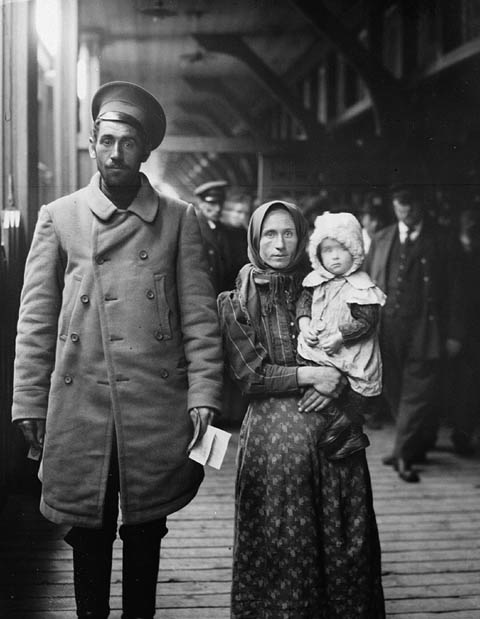| The race for the Republican presidential nomination has, if nothing else, demonstrated that some issues are destined to forever roll round the American political landscape like a steel ball in a bottomless funnel. The question is whether we will learn from history. Donald Trump has strengthened his fragile early lead on a large pack of candidates by attacking the part of the Constitution that says babies born on U.S. soil are given automatic citizenship, regardless of their parentage. The man in second place, former Florida Gov. Jeb Bush, said such so-called “anchor babies” are a growing concern among Asians, rather than Hispanics. If you’re getting dizzy, it is because we have now come full circle from 1866, when Congress debated passage of the 14th Amendment to the Constitution. |
| | That amendment, along with the 13th, was designed to erase the last traces of slavery in a country that had just concluded a bloody civil war. The final wording of the 14th Amendment, that “All persons born or naturalized in the United States … are citizens of the United States and the state wherein they reside,” led to a heated debate. It wasn’t so much over former slaves. No one seemed too concerned that they should be citizens, although the South would need another century or so to come to terms with that. No, the issue at hand concerned Chinese immigrant workers. According to a transcript of a part of that debate on May 30 of that year, Sen. Edgar Cowen of Pennsylvania asked pointedly, “Is the child of the Chinese immigrant in California a citizen?” The answer to that seemingly preposterous question at the time was yes, according to California Sen. John Conness. More than 20 later, the U.S. Supreme Court was faced with the case of Wong Kim Ark, a man born in the United States to Chinese parents. As an adult, he traveled to China. In August of 1895, he returned to San Francisco aboard the steamship Coptic but was denied readmission to the United States because he wasn’t deemed to be a citizen. These were the days before passports. If you dressed and acted Chinese, you were considered as such, no matter how well you spoke English. Supreme Court Justice Horace Gray put the matter to rest in 1898. Ark was a U.S. citizen by virtue of his birth. Birthright citizenship, he wrote for the court’s majority, had its roots in British common law. Before the 14th Amendment, “all white persons, at least, born within the sovereignty of the United States … were native-born citizens of the United States.” The amendment extended that right “in the most explicit and comprehensive terms” to everyone else. Historical records can be painful to modern sensibilities. In 1866 there was much talk of a possible invasion by “man-eaters or cannibals if you please …” to use the words of Pennsylvania Sen. Edgar Cowan. He also spoke of “nations of people with whom theft is a virtue and falsehood a merit.” The unstated concern was that extending citizenship to people from other nations would damage U.S. culture and end progress. Despite all the outrage that Trump and Bush have generated, their facts are fairly sound. The Washington Post examined the issue and found that about 36,000 “birth tourists” may come to the U.S., with visas, each year from East Asia, Eastern Europe or Nigeria. Trump is essentially right that about 300,000 children are born here each year to at least one undocumented parent. The question, now as in 1866, is so what? The United States has much to offer immigrants, far beyond its rather paltry welfare benefits. Economist Branko Milanovic concluded that the best way to become wealthy is to be born in a wealthy country, and that is a tremendous, and hardly new, lure. As Wokblog reporter Matt O’Brien wrote put it, “There's nothing more valuable than a U.S. passport. This country always has represented opportunity. And while the nation must protect its borders against threats, it is important to ask what immigrants can offer us. The millions of “undesirables” who came here after 1866, including my ancestors and perhaps yours, ought to provide a good enough answer. |


 RSS Feed
RSS Feed

